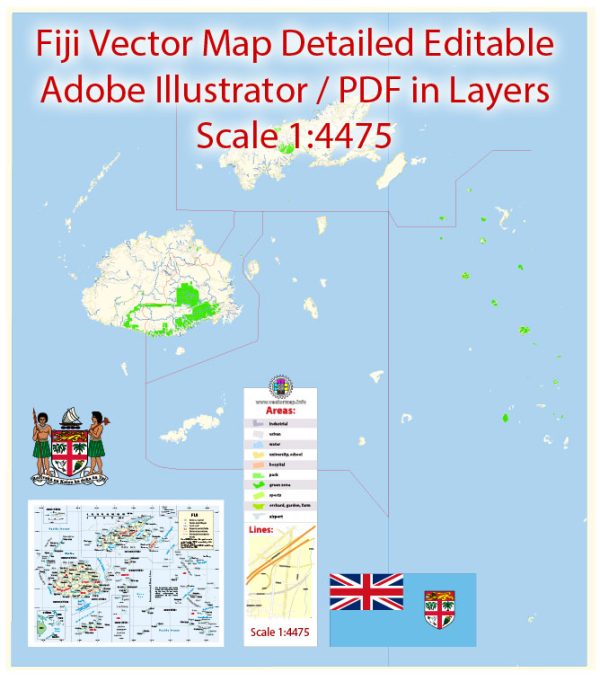Fiji, an island nation located in the South Pacific Ocean, has a complex political history that has evolved over the centuries. Here is a brief overview of Fiji’s political history:
- Indigenous Fijian Chiefdoms: Prior to European contact, Fiji was inhabited by indigenous Fijian communities organized into a system of chieftaincies. These chiefdoms had their own forms of governance and social structures.
- European Contact: European explorers, including Abel Tasman and James Cook, visited Fiji in the 18th century. European traders and missionaries began to establish a presence in the early 19th century.
- Colonial Era: In the mid-19th century, Fiji was ceded to Great Britain by the local chiefs. It became a British Crown Colony in 1874. The British colonial administration significantly impacted Fijian society and politics.
- Indentured Labor: The British brought indentured laborers, mainly from India, to work on sugar plantations in Fiji. The descendants of these laborers, known as Indo-Fijians, have played a significant role in Fiji’s political history.
- Self-Government: Fiji achieved self-government in 1966 and full independence from the United Kingdom in 1970. Ratu Sir Kamisese Mara, a prominent Fijian chief, became the first Prime Minister and later served as President.
- Ethnically Divided Politics: Fijian politics has been heavily influenced by the ethnic divisions between indigenous Fijians and Indo-Fijians. Tensions and competition between these two major ethnic groups have been a central feature of the political landscape.
- Coups and Instability: Fiji has experienced a series of military coups and political instability. The coups in 1987, 2000, and 2006, often involving elements of the military, led to changes in government and constitutions. These coups were often driven by ethnic and political tensions.
- Return to Democracy: After the 2006 coup, Fiji was ruled by military leaders for several years. In 2014, the country held elections and returned to democratic governance under the leadership of Frank Bainimarama, who had led the military government.
- 2013 Constitution: A new constitution was adopted in 2013, which aimed to address some of the underlying ethnic tensions by removing explicit ethnic-based parliamentary seats and establishing a common identity for all Fijian citizens.
- Recent Political Developments: In the years following the 2014 elections, Fiji has had a relatively stable political environment. The country has made efforts to strengthen its democracy and improve its international standing.
- Role in Regional Affairs: Fiji has played a significant role in regional organizations like the Pacific Islands Forum and the Melanesian Spearhead Group, advocating for the interests of Pacific Island nations on various issues, including climate change.
It’s important to note that Fiji’s political history is marked by a complex interplay of cultural, ethnic, and historical factors. The country continues to grapple with issues related to ethnic diversity, governance, and its role in the Pacific region.


 Author: Kirill Shrayber, Ph.D. FRGS
Author: Kirill Shrayber, Ph.D. FRGS